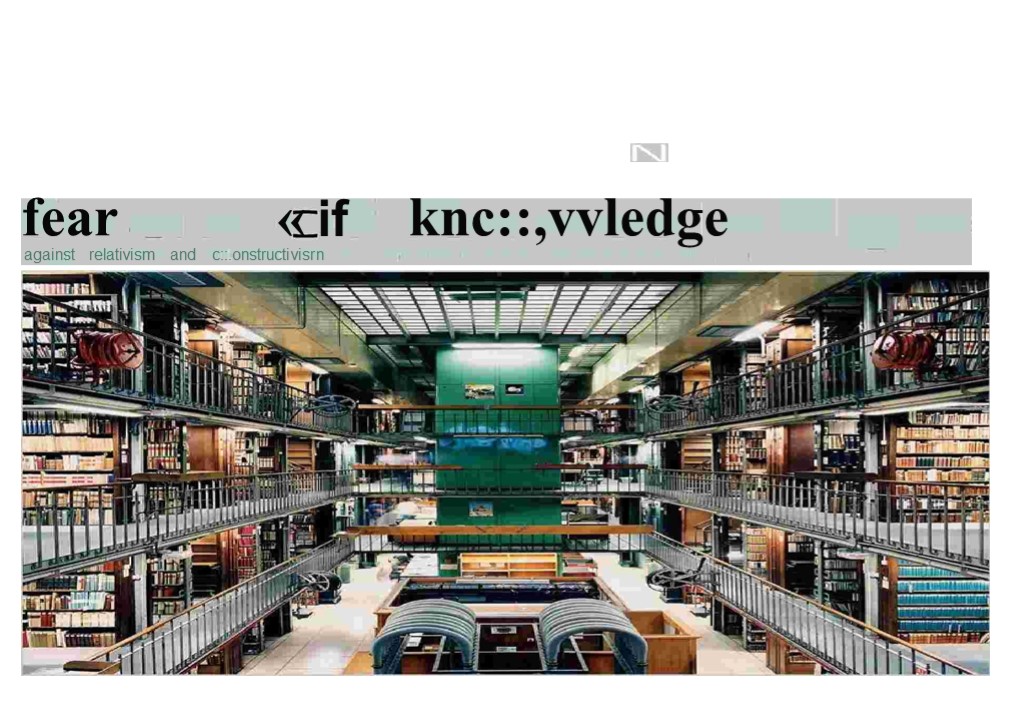⚡[PDF]✔ Fear of Knowledge: Against Relativism and Constructivism - PowerPoint PPT Presentation
Title:
⚡[PDF]✔ Fear of Knowledge: Against Relativism and Constructivism
Description:
COPY LINK HERE ; good.readbooks.link/pwshow/019928718X PDF/READ Fear of Knowledge: Against Relativism and Constructivism | Relativist and constructivist conceptions of truth and knowledge have become orthodoxy in vast stretches of the academic world in recent times. In his long-awaited first book, Paul Boghossian critically examines such views and exposes their fundamental flaws. Boghossian focuses on three different ways of read – PowerPoint PPT presentation
Number of Views:0
Title: ⚡[PDF]✔ Fear of Knowledge: Against Relativism and Constructivism
1
fear
knc,vvledge
if
against relativism and c.onstructivisrn
2
Fear of Knowledge Against Relativism and
Constructivism
3
Fear of Knowledge Against Relativism and
Constructivism
Sinopsis
Relativist and constructivist conceptions of
truth and knowledge have become orthodoxy in vast
stretches of the academic world in recent times.
In his long-awaited first book, Paul Boghossian
critically examines such views and exposes their
fundamental flaws. Boghossian focuses on three
different ways of reading the claim that
knowledge is socially constructed--one as a
thesis about truth and two about justification.
And he rejects all three. The intuitive,
common-sense view is that there is a way the
world is that is independent of human opinion
and that we are capable of arriving at beliefs
about how it is that are objectively reasonable,
binding on anyone capable of appreciating the
relevant evidence regardless of their social or
cultural perspective. Difficult as these notions
may be, it is a mistake to think that philosophy
has uncovered powerful reasons for rejecting
them. This short, lucid, witty book shows that
philosophy provides rock-solid support for common
sense against the relativists. It will prove
provocative reading throughout the discipline and
beyond.
4
Bestselling new book releases
Fear of Knowledge Against Relativism and
Constructivism
5
(No Transcript)
6
COPY LINK TO DOWNLOAD AND GET ABOOK copy link in
description
7
Fear
of
Knowledge
Against
Relativism
and
Constructivism
copy link in description
Relativist and constructivist conceptions of
truth and knowledge have become orthodoxy
in
8
vast stretches of the academic world in recent
times. In his long-awaited first book,
Paul Boghossian critically examines such views
and exposes their fundamental flaws. Boghossian
focuses on three different ways of reading the
claim that knowledge is socially
constructed--one as a thesis about truth and two
about justification. And he rejects all three.
The intuitive, common-sense view is that there
is a way the world is that is independent of
human opinion and that we are capable of
arriving at beliefs about how it is that are
objectively reasonable, binding on anyone
capable of appreciating the relevant evidence
regardless of their social or cultural
perspective. Difficult as these notions may be,
it is a mistake to think that philosophy has
uncovered powerful reasons for rejecting them.
This short, lucid, witty book shows that
philosophy provides rock-solid support for common
sense against the relativists. It will prove
provocative reading throughout the discipline and
beyond.

























![MS-700 Dumps PDF [2020] - Best Opportunity To Pass-out With Desired Scores PowerPoint PPT Presentation](https://s3.amazonaws.com/images.powershow.com/9385135.th0.jpg?_=20200114097)
![Microsoft MS-700 Dumps PDF [2020] - Valid Exam Practice Questions PowerPoint PPT Presentation](https://s3.amazonaws.com/images.powershow.com/9385224.th0.jpg?_=20200114106)




